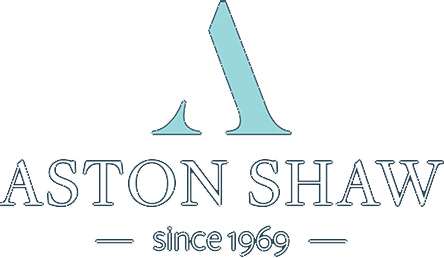Here are six ways you can cut your IHT costs, please note this is a brief overview and there may be exceptions to some of the methods presented in this article. If you wish to discuss your particular circumstances, please contact me, Philip Hunt on 01603 616300 or email me at philip.hunt@astonshaw.co.uk
Gifts
Gifting involves giving away your money or assets while you are still alive. There is a catch however, you need to survive for at least another 7 years after making the gift in order for it to be completely IHT exempt. However if you die between 3-7 years after making the gift and it exceeds the IHT threshold and is partly taxable the tax due is reduced on a sliding scale.
Discounted Gift Trusts
A discounted gift trust is designed for people who want to settle a lump sum into trust for their beneficiaries but want to continue taking a regular income. When the trust is set up, the part that is earmarked to pay the withdrawals (known as the discount) is immediately outside your estate, because you are expected to receive it back in your lifetime. The benefit of this method over straightforward gifting is that gift trust offer a way of shifting some value outside your estate without having to live for 7 years. If you don’t spend the amounts repaid to you each year, they will count as part of your estate for IHT purposes
Giving to Charity
If you leave 10 per cent or more of the “net value” of your estate to charity, you pay inheritance tax at a reduced rate of 36% instead of 40% on the entire estate. The net value is the total value of the assets after deducting debts, liabilities, reliefs, exemptions (anything left to a husband, wife or civil partner) and anything below the £325,000 nil-rate band.
Discretionary Trusts
A trust is a legal arrangement whereby a person your trust (a trustee) holds cash, property or investments as the nominal owner for the good of one or more beneficiaries. This will mean that anything put into trust no longer belongs to you and does not count when your IHT bill is worked out. When large amounts are settled into a discretionary trust during a lifetime, IHT will be charged at 20% on the value above £325k immediately. If you die within 7 years of making a transfer into a trust, your estate will have to pay IHT at the full amount of 40%. Trusts are commonly used to hold assets for those under 18.
Business Property Relief
Business property relief (BPR) allows shares in certain companies, and other assets used in business, to be passed on IHT free. This is an efficient relief as shares in qualifying companies only have to have been held for two years for the relief to apply.
Whole-of-Life Policies
A whole-of-life policy is a way of gradually paying your way towards a IHT bill during your lifetime. It will pay out immediately upon the death of the policyholder prior to probate being granted. Providing this is written in trust, there will be no inheritance tax to pay on the lump sum. The idea behind this is that the policy gives heirs enough cash to pay the IHT bill before interest is incurred 6 months after the death.
Inheritance Tax Jargon Buster
Assets – Items of economical value that are owned by an individual.
Beneficiary – A person who is eligible to receive the distribution form a will or an estate.
Business Property Relief (BPR) – Tax relief which is designed to encourage investment in trading businesses. Qualifying shares will be exempt from IHT once they have been held for 2 years.
Charity Relief – A reduction in the inheritance tax (IHT) rate from 40% to 36% for estates where the deceased left more than 10% of the value of the estate to a qualifying charity.
Crown – The Government. If someone dies intestate, and there is no family as a beneficiary, the estate goes to the crown.
Direct Descendent – A child, adopted child, foster child. stepchild, grandchild or step-grandchild who can benefit from the family home allowance of £100,000.
Executor – A person nominated to carry out the instructions in a will.
Family Home Allowance – An extra allowance, starting at £100,000 in 2017-18 and eventually rising to £175,000 by 2020-21, added to the IHT nil-rate band for those who own a family home and are passing it to a direct descendant.
IHT allowance/Nil Rate Band – An amount available to all domiciled in the UK. The first £325,000 of an estate is IHT exempt.
Intestate – Dying without a Will.
Probate – A legal document that proves a Will and allows the executor to distribute the estate as the deceased directed in the Will.
Trust – A legal arrangement where cash, investments or property are given to someone to look after for a third person’s benefit.
Residual Beneficiaries – Entitled to the residue of the will (anything left after everything else has been paid out).














